Flynn searches for WWII veterans, plans to write a book
IMAGE / Ryan Thomas
Sophomore Andrew Flynn is interviewing World War II veterans to gather research for a book he plans to write.
After reading “The Last of the Doughboys” by Richard Rubin, sophomore Andrew Flynn was inspired to do something similar to the book. Rubin’s book is a true story about the author’s quest to interview the last surviving American World War I veterans.
Flynn already had a great passion for World War II prior to reading the book. Flynn started his interest in WWII in fourth grade.
Throughout the interview, Flynn shared his vast knowledge of WWII explaining certain ranks, the number of casualties, and certain battle dates.
At the age of 15, Flynn has made it his goal to find World War II veterans and tell their stories in a book. He plans on interviewing at least 20 veterans for his non-fiction book and having it completed by 2016.
“World War II veterans came from one of America’s greatest generations. They grew up in the Great Depression and soon afterward fought in the bloodiest war the world has seen to date,” Flynn said. “These heroes need to be remembered for everything they have done.”
After getting the support of his parents, Flynn researched online records, asked multiple people in person, and asked on Facebook for anyone who knows a living WWII veteran.
We only have around 860,000 living World War II veterans, down from 1.1 million last year. I thought someone needed to go out and interview these guys. So, I went out and did some research.
— Andrew Flynn, sophomore
“We only have around 860,000 living World War II veterans, down from 1.1 million last year. I thought someone needed to go out and interview these guys,” Flynn said. “So, I went out and did some research.”
Shortly after his research, Flynn found eight WWII veterans, including a German veteran, Lt. Wolfgang Kloth.
On March 21, Flynn met with Kloth and interviewed him via video chat.
“I felt a little odd at first knowing that 70 years before, this man would have been our nation’s enemy, since he was a German,” Flynn said. “But I quickly got over it.”
Flynn asked Kloth multiple questions about his life, starting with Kloth growing up in post WW I Germany with his family, led by his father, a German WWI veteran.
As the conversation continued, the topic switched to the rise of Adolf Hitler and the Nazis in 1933, and to Kloth’s enlistment in the Deutsche Wehrmacht. Kloth started as an unteroffizier, which is similar to a sergeant, and later became an officer.
“Kloth served as a lieutenant in the 2nd Panzer Division until he surrendered to Soviet troops in 1945. Kloth commanded a Panzer Mark IV, a tank equivalent to the American Sherman,” Flynn said.
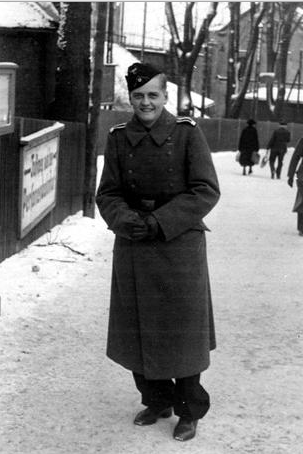
German Lt. Wolfgang Kloth was a tank officer in World War II. In this photo, Kloth is in Eastern Europe in 1942.
Kloth earned the Iron Cross in both the first and second class.
“The Iron Cross was a German award for bravery given to soldiers who had distinguished themselves on the battlefield for Germany,” Flynn said.
Kloth was also wounded by Soviet soldiers four times while in battle.
Unfortunately, Flynn would not share any more details from his interview with Kloth.
“I cannot currently share all the details, as I’m still gathering veteran interviews together,” Flynn said. ” However, once I do, you can be sure to read it in my book. Once it is published.”
In June, Flynn plans to meet Kloth in person in Kalamazoo for further questions. Kloth immigrated to the United States in the early 1950s, living in western Michigan.
Flynn encourages all teenagers to embark on similar quests to interview the last surviving veterans of WWII, and to interview veterans of other conflicts, such as the Korean War and the Vietnam War.
“After World War II, we forgot about the World War I veterans, and by the time people began taking more of an interest in World War I in the late 1990s and the 2000s, it was too late,” Flynn said. “The few that survived were in their hundreds, some as old as 111.”
Once all of the interviews are completed, Flynn hopes to understand why all the veterans went to war, why they felt the need to give everything for their country, and how they feel about war today.
Flynn is still figuring out what to call his novel. He has brainstormed titles such as “Grandpa’s War,” “The Final Battalion,” or “The Last Roll Call.”
In addition, Flynn does not know which publisher he will submit his book to, but plans on figuring it out once the draft of his book is done.
If you know a living WWII veteran who would like to be interviewed for Flynn’s novel, please feel free to contact Flynn through Facebook.

Class: Senior
Clubs: National Honors Society. Freshman Mentor
Athletics: Swim and Dive, Track & Field
Hobbies: Swimming, Running, Writing...
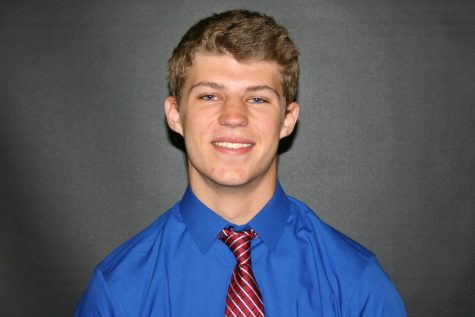
Senior
Birthday: October 28, 1998
Extracurricular activities: Marching Band
Hobbies: Playing brass instruments, Fantasy sports
Plans after...

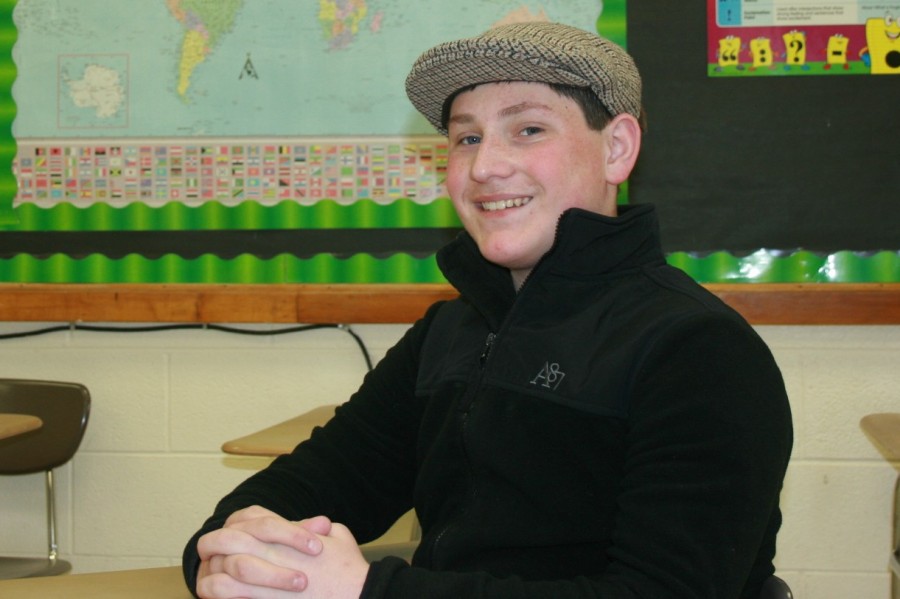
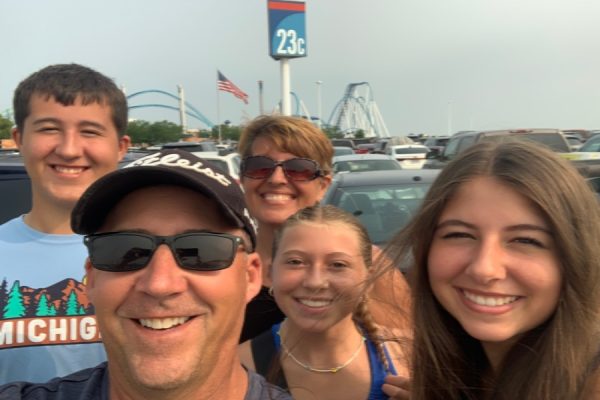
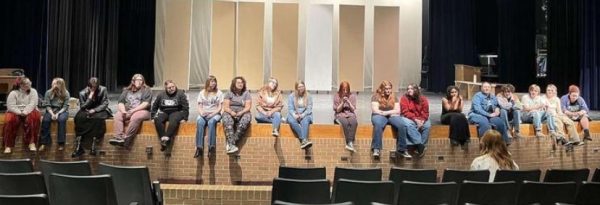










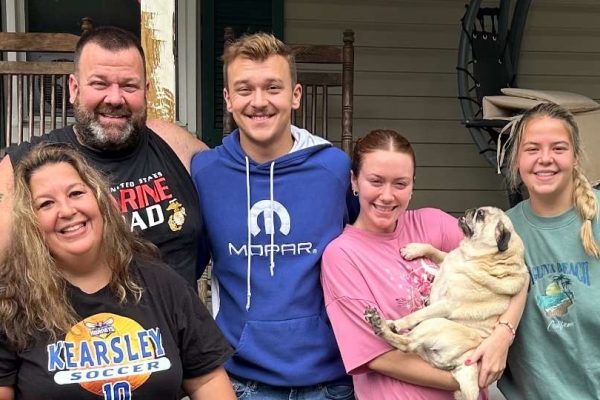
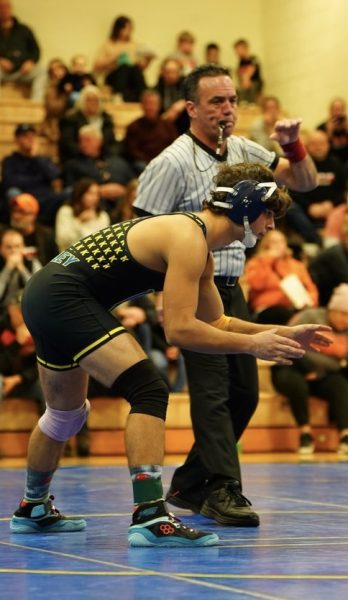
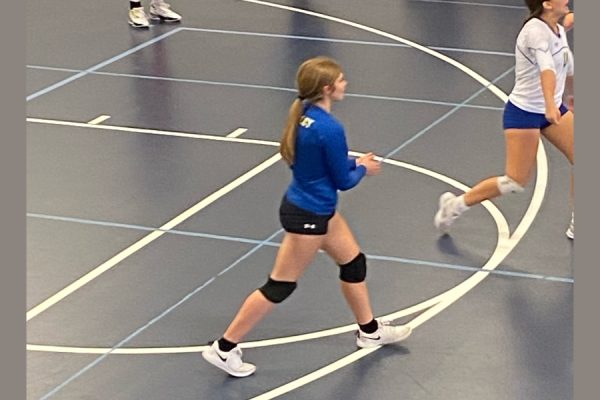
Mary Reese • Apr 22, 2015 at 6:50 am
This is a very impressive young man! Looking forward to his book.
Chris Madison • Apr 22, 2015 at 10:09 am
You always have to follow your heart you go Andy